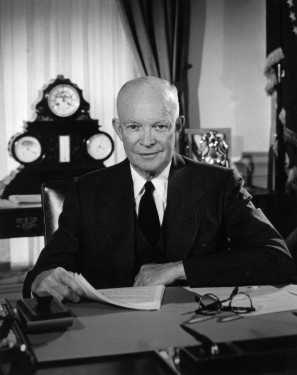The 1960 Civil Rights Act
The 1960 Civil Rights Act aimed to prevent the disenfranchisement of African Americans in the South by establishing federal inspection of voter registration polls. It also introduced penalties for those who prevented someone from voting.
President Eisenhower passed the act on 6 May, following huge opposition from conservative Southerners and the longest filibuster in Senate history.

The 1960 Civil Rights Act expanded the enforcement powers of the 1957 Civil Rights Act through its inclusion of provisions against bombings and local interference with federal court orders, among other issues.
Although the 1960 Civil Rights Act was a step in the right direction, it was deemed ineffective for the establishment of civil rights. It only added an extra three per cent of Black voters to the electoral roll for the 1960 election. The 1964 Civil Rights Act and the 1965 Voting Rights Act would build on Eisenhower’s Civil Rights Acts.
See also: Medgar Evers
MLA Citation/Reference
"The 1960 Civil Rights Act". HistoryLearning.com. 2026. Web.
